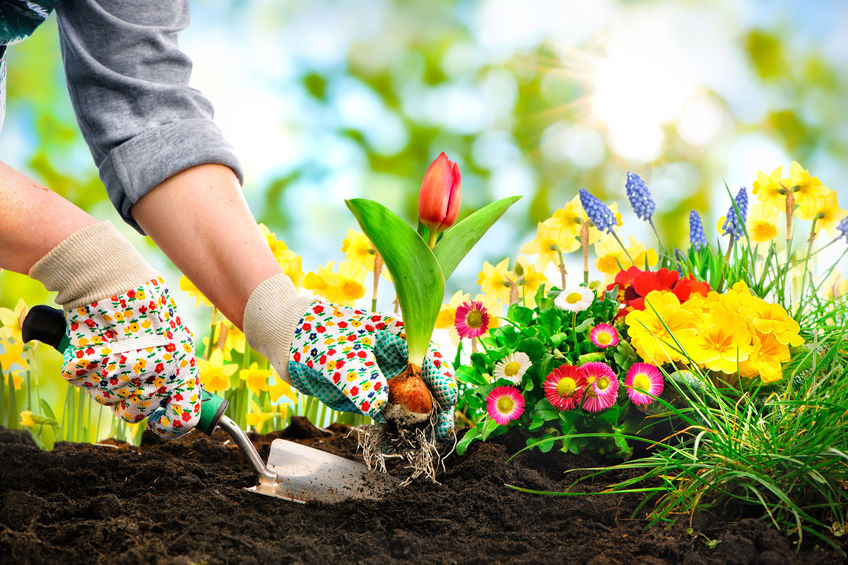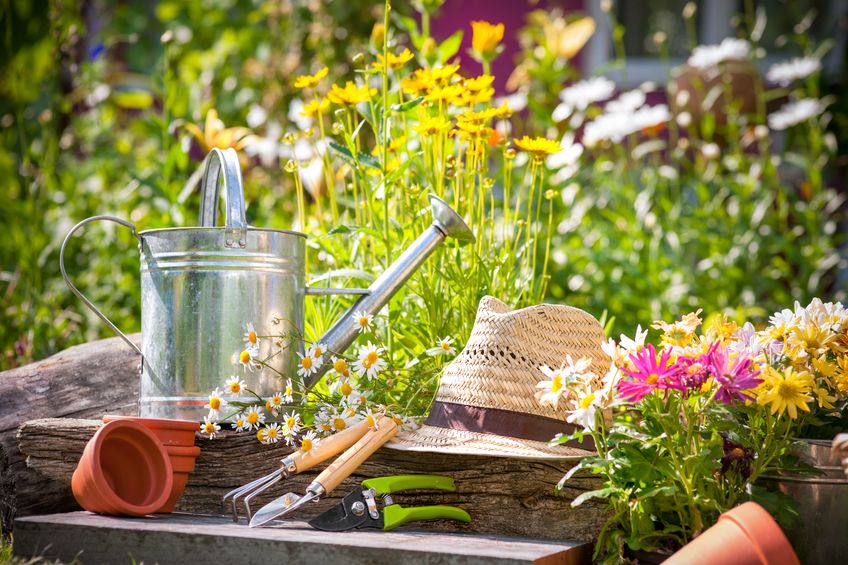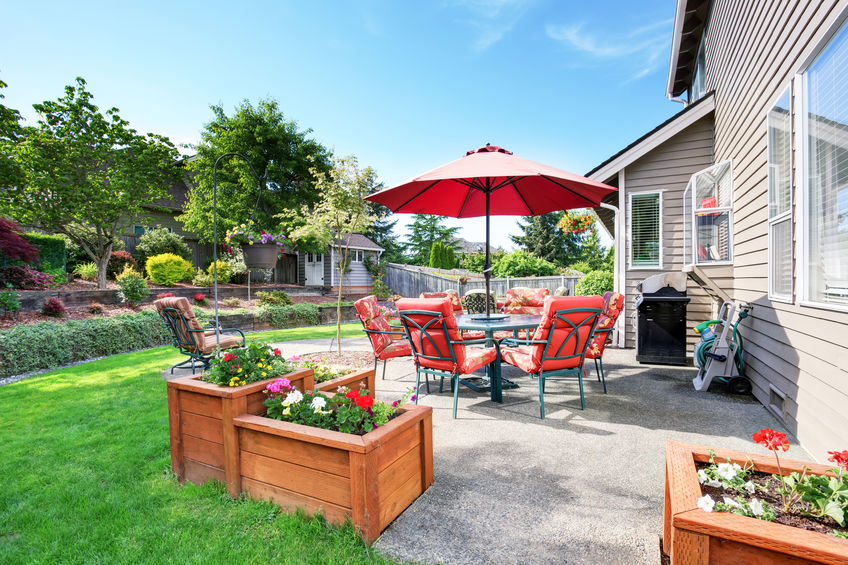Blog - Important Tips for Keeping a Great Looking Summer Garden

Important Tips for Keeping a Great Looking Summer Garden
“To plant a garden is to believe in tomorrow.” — Audrey Hepburn
It’s summer, and the days seem to be getting hotter and longer. Unless you planted a drought-tolerant garden, your once beautiful oasis will suffer. There are ways to help extend the life of your garden and keep it looking fresh, despite a heatwave.
Here’s a quick education on plant life: the heat of the sun will cause plants or leaves to wilt! This is the leaf’s way to protect itself against too much heat. The process is called transpiration; it is a form of plant perspiration, for it releases moisture for protection. This is when leaves wilt, which happens so that there is less surface area exposed to the killer heat.
Here are a few essential tips about watering plants:
- You should only water early in the morning or later in the evening once it has cooled down. Don’t water midday, since most of the water will evaporate before it reaches the roots.
- Overwatering continuously will deprive the roots of oxygen. It can also promote unwanted fungi in the soil. You can check for signs of overwatering, such as leaves that start to wilt and turn brown, or leaves that turn yellow and fall. The same signs apply if you’re underwatering.
- Don’t forget that overwatering is also the leading cause of root rot. Signs of this fungal disease include grey, brown, or slimy roots, which ultimately cause the plant to wilt.
- A soaker hose is a desirable solution for deep irrigation twice or three times a week.

What is the importance of mulching?
- Mulch helps the roots of the plants by providing insulation from both heat and cold. It also slows weed growth.
- Mulch also keeps the soil moist so that important nutrition can get to those precious plants.
- To get started, identify the area you want to mulch. Then design the area; so if you’re mulching around a tree, put some stones where the mulch will be held in place.
- Now, find your mulch, which can be easily made out of grass clippings, leaves, and pine needles. Or you can go buy it at the store. Some types include rubber, wood, or mini-nuggets.
- You may want to get some landscaping fabric to lay over the ground after you’ve done your planting. Just be sure to cut some holes for the plants to come through. Then, just get your tools and wheelbarrow and start spreading the mulch!
- A thick layer of mulch is recommended, about four to six layers if your garden deals with extreme temperatures. The thicker the mulch, the harder for weeds to come through.
Yes, you can MacGyver it!
Like humans, plants can get sunburned; when this happens, they will stop producing flowers. The target temperature is around the mid-90s; at this point, plants cease to produce flowers. So, give your plants shade by using items such as a patio umbrella at the hottest time of the day, or a bedsheet stretched out over a trellis to reach the plants that are in need.

Some additional quick tips:
- Remember, with temperatures in the mid-90s your plants will be under stress, so if you see fruits or vegetables, harvest them. This will lower the stress level on the plants.
- In an actual heatwave, increase your water irrigation, so if you usually irrigate 30 minutes three times a week, you might want to increase this to 45 minutes three times a week. Just make sure to keep checking the soil’s moisture.
- If you are watering with a hose, then make sure you are watering deep into the soil. Make a small puddle, let it soak to the bottom, and do it again. Keep checking the soil every day.
- Fertilizing your plants is critical to keeping plants healthy. Fertilizer is like a vitamin supplement for a plant and replaces essential nutrients that your soil gradually loses. Know which plants require more fertilization than others, and as a general rule fertilize your outdoor garden plants every two to three weeks.
- Want to keep pesky insects away from your garden naturally? Try diluting some dish soap and water and spray on your plants, or mixing some essential oils such as rosemary, clove, and peppermint and use as a spray.
- Garlic spray is also a great natural deterrent for bugs! For a moderate dosage, mix six cloves with one gallon of water. For something more concentrated, you can try two bulbs of garlic and puree it with ½ cup of water. Crush your garlic and put it into a bowl. Pour boiling water over it, then cover it and let it steep overnight. Strain the pieces out before you put in a spray bottle. Click here for more information on garlic sprays.
Follow these tips and your garden should be in good shape the rest of the summer!
No Description
Leave a Comment
You must be logged in to post a comment.